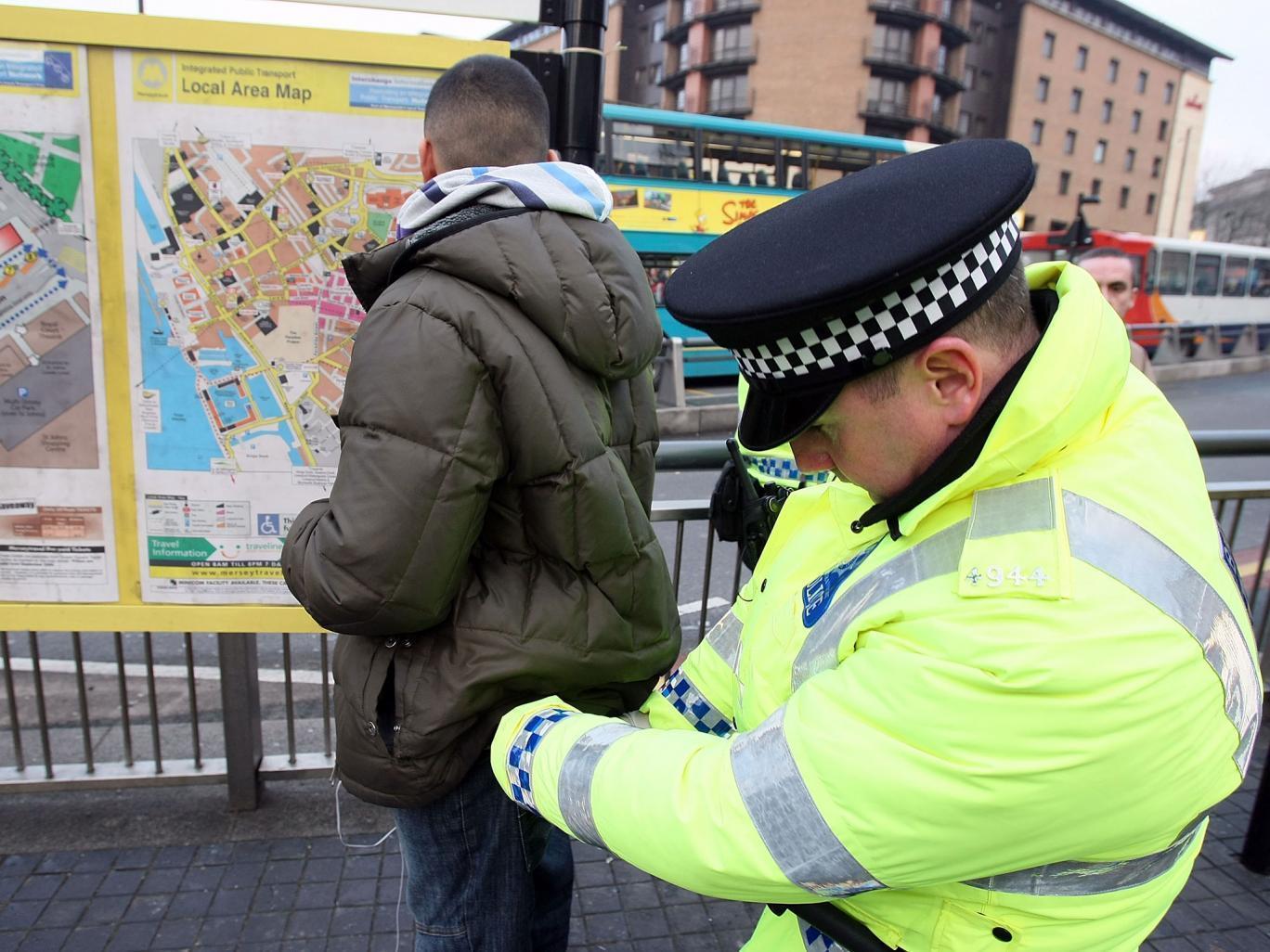Stop and search powers are not being used enough, one of Britain's most senior police chiefs warns
'I am advocating policing that we know works, targeted patrols of hotspots, with our officers certain we are behind them to use their judgment and their powers in the public interest'

Stop and search powers are not being used enough, one of Britain’s most senior police chiefs has claimed.
Sara Thornton, chairman of the National Police Chiefs’ Council, called for officers to be supported in their use of stop and search as rates of gun and knife crime have surged.
Ms Thornton argued that backlash against the controversial powers had gone too far and stressed it was an “important tool” in protecting the public.
“This power may have been used too freely in the past, but the pendulum has now swung too far in the opposite direction,” she wrote in an article for the Daily Telegraph. “Our officers must know that we back them to use their powers – lawfully and respectfully, but with confidence.”
Ms Thornton, who served as chief constable of Thames Valley police between 2007 and 2015, Ms Thornton said that police were trained to exercise the powers with “dignity and respect”, while advances such as body-worn cameras could increase public support for the method.
She wrote: “I am not advocating random stop and search, or abusing our powers in headlining-grabbing crackdowns. I am advocating policing that we know works, targeted patrols of hotspots, with our officers certain we are behind them to use their judgment and their powers in the public interest.”
London Mayor Sadiq Khan also backed the use of stop-and-search powers, telling BBC Radio 4’s Today: “What you will see over the course of the next few weeks and months is what we have seen over the last few weeks and months which is stop-and-search based on suspicion of carrying an offensive weapon going up, more arrests as a consequence of this intelligence-led stop-and-search going up and hopefully our city becoming safer.”
Defending his actions over the past few days, he said: “I have been here working, grappling with this issue,” adding that he had been working with London’s Metropolitan Police and the deputy mayor for policing and crime.
He also called on called members and friends of people carrying knives to help tackle the problem.

“You could be a mum or dad, big brother, big sister, a friend, a girlfriend, a boyfriend who knows somebody carrying a knife, leaving their home with a knife, involved in criminality – there’s no honour in keeping that a secret. You should try and prevent that person carrying a knife, leaving home with a knife.”
Some 300 extra officers are being deployed in badly hit parts of the capital amid a spike in deadly violence, while the Metropolitan Police Chief Cressida Dick had to insist the force had not lost control of capital’s streets.
It emerged on 5 April that the Met has opened 55 murder investigations in London this year and there were six non-fatal stabbings from the night of 5 April into the morning of 6 April in the capital.
The rising wave of violent crime meant the number of suspected murders in March was higher than that of New York.
On 6 April a 30-year-old man was arrested in Hackney over the murder of 17-year-old Tanesha Melbourne-Blake who was gunned down in the north London district of Tottenham earlier this week.
The teenager was killed in a drive-by attack as she sat chatting with friends in a killing that shocked the capital.
Metropolitan Police Commissioner Cressida Dick said the spate of violence in the capital was “very worrying”, describing the spike as “unusual”.
She defended the force’s record of bringing criminals to justice and said she believed the perpetrators of the recent killings would face the courts.
On 6 April a section 60 order, granting police stop and search powers across the Borough of Newham, was announced in response to an incident where a 13-year-old boy was stabbed.
A Met officer said that stop and search efforts on members of the public had been increasingly uncovering weapons.
However Sergeant Paul Perversi said that the popularity of smartphones and social media has “massively” encouraged more people to challenge officers during a search, with many people stopping to film the process and post footage online.
“I would say it happens more often than not,” he said. ”If you stop two people out of 10, you will have five people who get their phone out. Then you go and search on YouTube and I’m there.”
Ms Thornton said that the increase in violent crime was not limited to London, with figures showing knife crime has increased by 21 per cent and gun crime by 20 per cent year-on-year across the country.
Meanwhile the use of stop and search has fallen dramatically, with section 60 powers falling in use from 1,429 instances to 23 between 2011/12 and 2016/17 in London.
As a policing method, stop and search has been criticised for disproportionately targeting poorer areas and ethic minority groups.
Agency contributed to this report
Bookmark popover
Removed from bookmarks